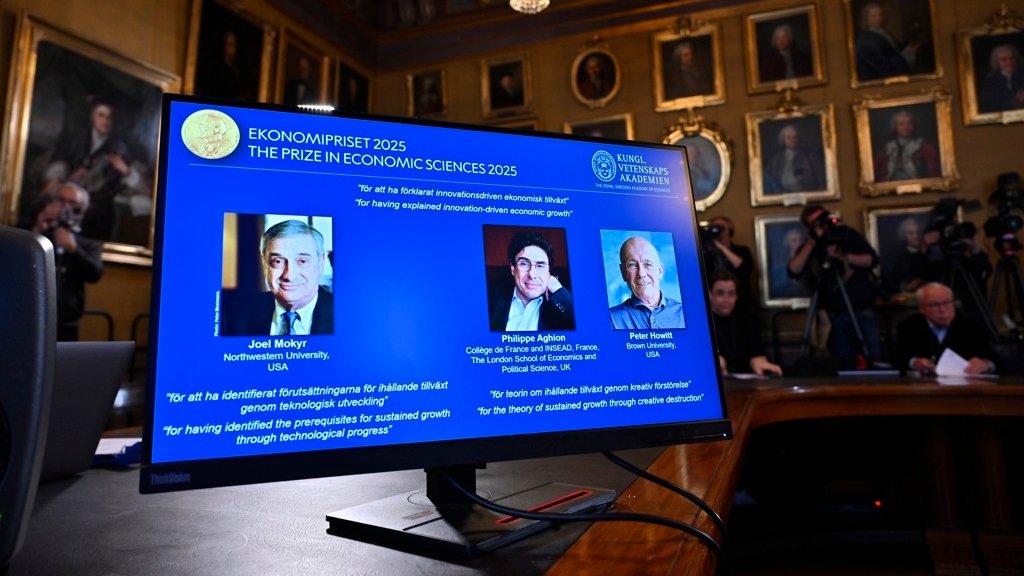The 2025 Nobel Prize in Economics was awarded, this Monday (13), to economists Joel Mokyr, Philippe Aghion and Peter Howitt for their work that links technological advancement and innovation with sustainable economic growth. The announcement took place earlier in Stockholm, Sweden.
Mokyr, a professor at Northwestern University, received half of the award for his historical studies that identified the “prerequisites for sustainable growth through technological progress.” According to the Royal Swedish Academy of Sciences, the researcher “used historical sources as a means to discover the causes of sustained growth, which has become the new normal”.
The other laureates, Aghion and Howitt, shared the second half of the prize for developing the theory of “sustained growth through creative destruction” — a concept that explains how innovation replaces outdated models, driving progress. Aghion, linked to the Collège de France, Insead and the London School of Economics, and Howitt, from Brown University, deepened the understanding of the mechanisms that make continuous growth possible.
“In different ways, the laureates show how creative destruction generates conflicts that must be managed constructively. Otherwise, innovation will be blocked by established companies and interest groups who risk being disadvantaged,” the Academy said in a statement.
SEE ALSO:
-
Does Brazil still have a way? What needs to change for the country to get rid of stagnation
The Royal Swedish Academy of Sciences went on to state that “economic stagnation, not growth, has been the norm for most of human history. Their work shows that we must be aware of threats to continued growth and combat them.”
Shortly after the announcement, Philippe Aghion stated that artificial intelligence should accelerate the so-called creative destruction, “but also the production of goods, services and ideas”. The economist highlighted the importance of educational institutions and work policies to take advantage of the potential of the new technological revolution.
“We need institutions functioning in the area of education and policies for the labor market to take advantage of this productivity potential and ensure that we minimize the negative effects of the new industrial revolution, as we did with the previous ones”, said the professor, who intends to invest his part of the prize in his research laboratory at the Collège de France.
Aghion demonstrated optimism by defending the Nordic model of education as a reference for the future, stating that “we must follow the example of Sweden and Denmark on this front”. “And I believe that this will happen”, he added.
The Nobel Prize in Economics — officially called the Sveriges Riksbank Prize in Economic Sciences in Memory of Alfred Nobel — maintains the prestige and rigor of other prizes awarded since 1901. Created by the Central Bank of Sweden, it is administered by the Royal Swedish Academy of Sciences and follows the same criteria as the original prizes.
Nominations are made by invitation only, and the names of nominees remain confidential for 50 years. Members of the Academy, former laureates, academics from Scandinavian universities and other international institutions selected annually can nominate candidates. The final choice rests with the Economic Sciences Prize Committee, made up of five members.
In addition to the medal and diploma, the award offers the equivalent of R$5.7 million, an amount that recognizes not only the academic contribution of the winners, but the importance of innovation as a driving force for development.

